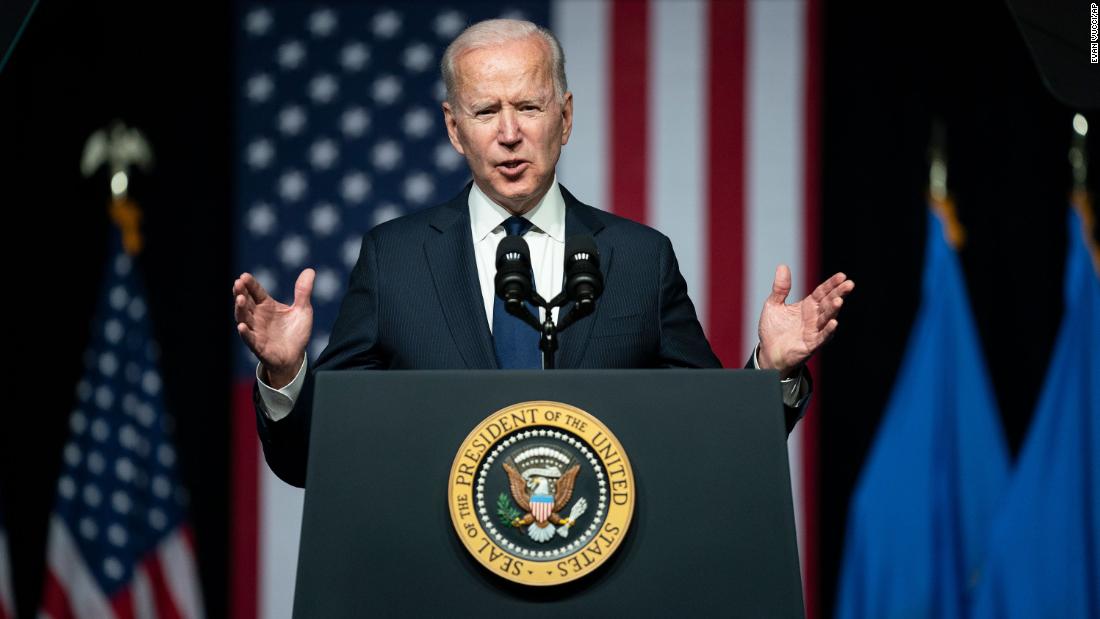Here’s what the President can do on his own about racial inequality and where he’ll need Congress to act
Some measures — including changes to deal with housing discrimination and directing federal support to small businesses — he can take on his own, but many of his proposals require congressional approval that could be very tough to secure.
There are many reasons for the gap, including a big difference in home ownership — a key vehicle to building wealth. About 74% of Whites owned homes in the first quarter of 2021 versus 45% of Blacks, according to the US Census Bureau.
What executive actions Biden will take
Combating housing discrimination. The President is charging Secretary of Housing and Urban Development Marcia Fudge with leading a first-of-its-kind interagency initiative to address inequity in home appraisals. The effort will include carrying out potential enforcement under fair housing laws, regulatory action, and the development of standards and guidance in partnership with industry and state and local governments.
To allow the more vigorous enforcement of the Fair Housing Act, the agency also will publish two rules aimed at combating practices that contribute to systemic inequality. The rules would reinstate the agency’s discriminatory effects standard and the requirement that municipalities that receive agency funding show that the money’s use does not further discrimination.
The moves are a “welcome step” and go part of the way to addressing structural divides in the housing market that have developed over decades, said Michael Neal, senior research associate at the Urban Institute. He would also like to see downpayment assistance, particularly for the historically disadvantaged.
Directing federal contracts to small businesses. In addition, Biden wants more federal purchasing to be made from small, disadvantaged businesses, many of them minority-owned — though it could take years to have an impact. His goal is to increase the share of contracts going to them by 50% by 2026.
The President can direct federal agencies to conduct outreach to smaller businesses and reduce barriers that exist for them to compete in federal contracts. It’s unclear whether he will need Congress to pass legislation that changes some of the rules.
What Biden will need Congress to do
Create a $10 billion Community Revitalization Fund: The fund would target economically under-served areas and support community-led civic infrastructure projects that develop neighborhood amenities, revitalize vacant land and buildings, spark new local economic activity, provide services, promote civic engagement and build community wealth.
Invest in transportation infrastructure: The President wants to establish grants totaling $15 billion that would target neighborhoods where people have been cut off from jobs, schools and businesses because of previous transportation investments. The funding would support planning, removing or retrofitting infrastructure that creates barriers to communities.
Increase affordable housing: Biden is calling for the creation of a Neighborhood Homes Tax Credit to attract private investment in the development and rehabilitation of affordable housing for low- and moderate-income buyers and owners.
Expand housing choices: The President is asking lawmakers to establish a $5 billion grant program for jurisdictions that take concrete steps to eliminate land-use and zoning barriers to producing affordable housing and that expand housing choices for people with low or moderate incomes.
Invest $31 billion to support minority-owned small businesses: Biden wants to provide $30 billion to the Small Business Administration to increase access to capital for the smallest companies, develop new loan products to support small manufacturers and businesses that invest in clean energy and launch a Small Business Investment Corporation to make early stage equity investments, placing a priority on small firms owned by socially and economically disadvantaged individuals. It would also establish a $1 billion grant program through the Minority Business Development Agency aimed at helping minority-owned manufacturers access private capital.
What else Biden could do
Biden has resisted the pressure so far but has said he would support a move by Congress to cancel $10,000 per borrower. It’s unlikely that legislation would pass the Senate where Democrats have a razor thin majority.
Biden did not include a student debt cancellation provision in his $1.8 trillion American Families Plan, which calls for making community college free and expanding Pell Grants for low-income college students, or in his proposed budget. NAACP’s National President Derrick Johnson criticized Biden for failing to address the student loan crises, which he said was at the core of the racial wealth gap.
CNN’s Kate Sullivan contributed to this story.
![]()


